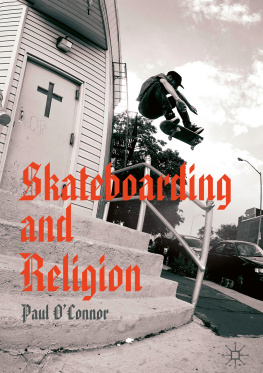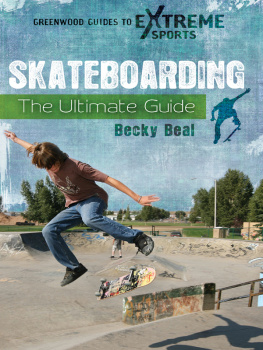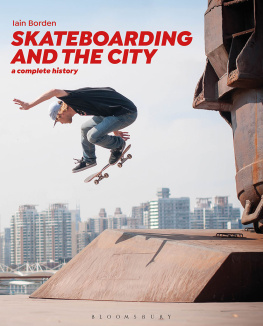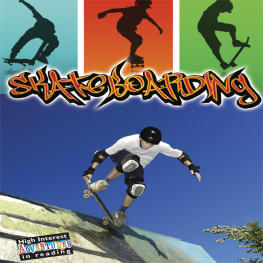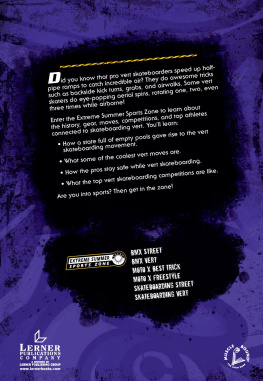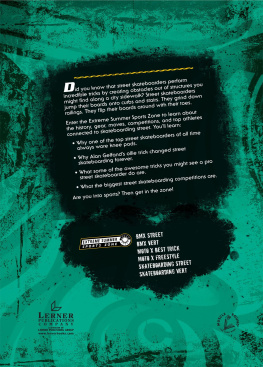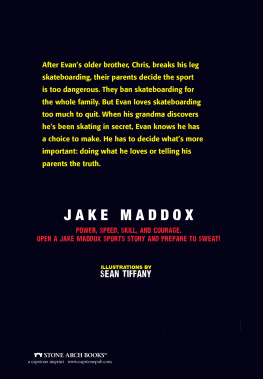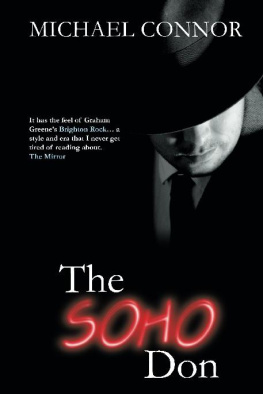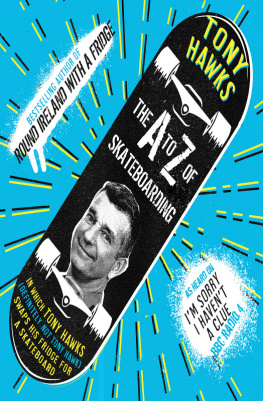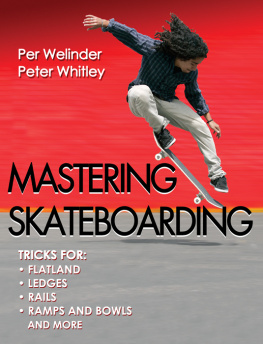Paul O’Connor - Skateboarding and Religion
Here you can read online Paul O’Connor - Skateboarding and Religion full text of the book (entire story) in english for free. Download pdf and epub, get meaning, cover and reviews about this ebook. year: 2020, publisher: Palgrave Macmillan, genre: Religion. Description of the work, (preface) as well as reviews are available. Best literature library LitArk.com created for fans of good reading and offers a wide selection of genres:
Romance novel
Science fiction
Adventure
Detective
Science
History
Home and family
Prose
Art
Politics
Computer
Non-fiction
Religion
Business
Children
Humor
Choose a favorite category and find really read worthwhile books. Enjoy immersion in the world of imagination, feel the emotions of the characters or learn something new for yourself, make an fascinating discovery.
- Book:Skateboarding and Religion
- Author:
- Publisher:Palgrave Macmillan
- Genre:
- Year:2020
- Rating:5 / 5
- Favourites:Add to favourites
- Your mark:
- 100
- 1
- 2
- 3
- 4
- 5
Skateboarding and Religion: summary, description and annotation
We offer to read an annotation, description, summary or preface (depends on what the author of the book "Skateboarding and Religion" wrote himself). If you haven't found the necessary information about the book — write in the comments, we will try to find it.
Skateboarding and Religion — read online for free the complete book (whole text) full work
Below is the text of the book, divided by pages. System saving the place of the last page read, allows you to conveniently read the book "Skateboarding and Religion" online for free, without having to search again every time where you left off. Put a bookmark, and you can go to the page where you finished reading at any time.
Font size:
Interval:
Bookmark:
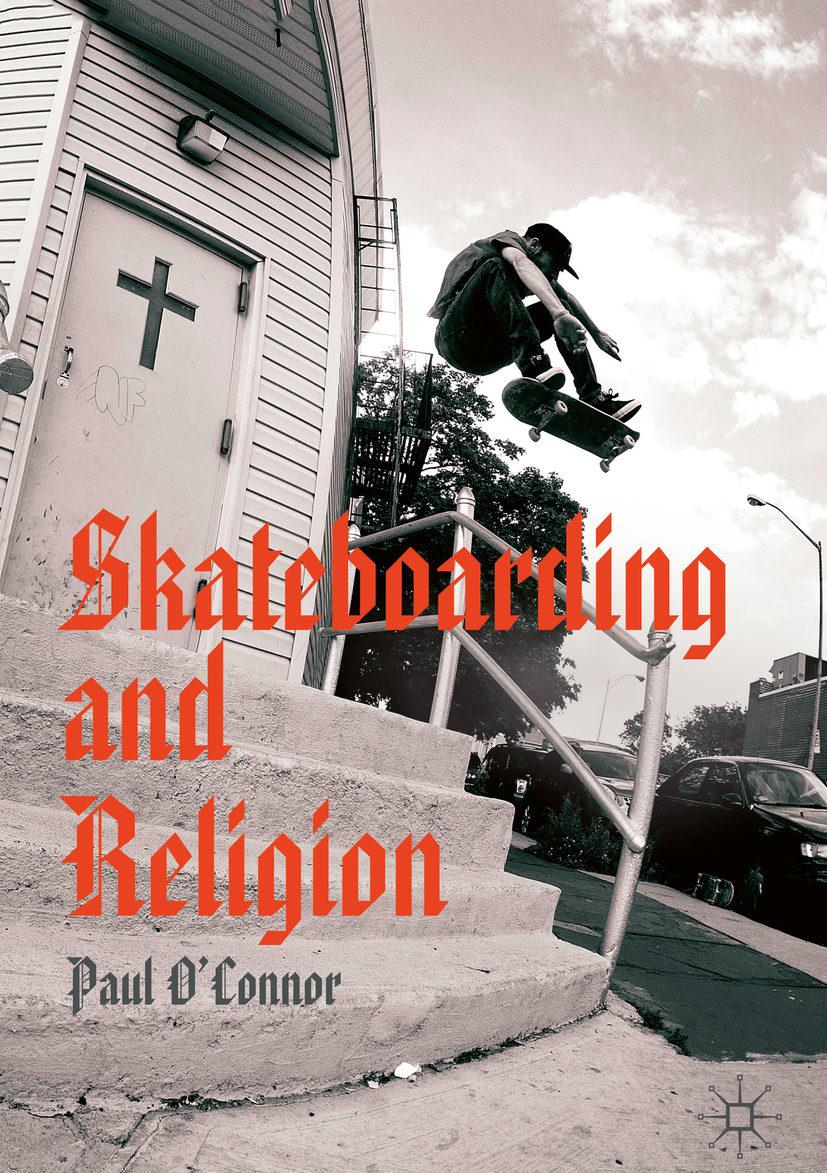

Cover illustration: Zered Bassett by Ryan Allan Design Fatima Jamadar
This Palgrave Macmillan imprint is published by the registered company Springer Nature Switzerland AG.
The registered company address is: Gewerbestrasse 11, 6330 Cham, Switzerland
Paul OConnors Skateboarding and Religion is an exhilarating book; it is simultaneously a challenge to all mainstream ideas about religion and religious experience, and a rich and nuanced study of the religious dimensions of skateboarding. OConnor interrogates the origin myths of the sport, sketches portraits of the saints and mystics of the skateboarding world, profiles a diverse group of skaters from different geographical and religious contexts and offers a sophisticated reading of the aesthetics and symbolism used by skateboarders. The sacred spaces of the sport, the impulse for pilgrims to visit and engage with these sites, and the ritual dimensions of their activities are chronicled, and the text is enriched by images that make the phenomena discussed comprehensible for the reader. This original and joyous study is a major contribution to the study of contemporary religious and spiritual trends.
Carole M. Cusack, Professor of Religious Studies, University of Sydney, Australia
Through a sociologists nuanced analysis and a skateboarders commitment to the daring, Paul OConnor makes clear the often surprising religiosity that underpins skateboardings culture, industry, and even the act itself. This groundbreaking book will convince even the most stubbornly secular reader that skateboarding is something especially sacred in the modern world.
Christian N. Kerr, Writer and Editor at Jenkem Magazine
At once insightful, questioning and provocative, Paul OConnors Skateboarding and Religion takes two seemingly disconnected phenomena and shows how they are intrinsically inter-related. This massively original study will be of interest to anyone concerned with the sociology of skateboarding and other youthful practices. Very highly recommended.
Iain Borden, Professor of Architecture and Urban Culture, University College London, UK
In Skateboarding and Religion Paul OConnor provides a valuable expansion of the sport-religion relationship bound to impact multiple interdisciplinary audiences. Most works on sport and religion focus on team and commercial sports. OConnors work is unique in offering a much-needed analysis of religion in the neglected area of lifestyle sports. From the perspective of sporting subcultures, he crafts an innovative framework for understanding religion across multiple denominational, informal, commercial, geographical, and artistic practices.
Daniel A. Grano, Professor of Communication Studies, University of North Carolina, Charlotte, USA
A seductive synthesis of radically different genres, OConnors alchemy fuses the sociology of lifestyle sports with religious studies. This bold foray into the academic unknown requires a leap of faith which counters the notion of skateboarding as a culture of destructive iconoclasts. OConnors fresh accounting of this oft demonized subculture argues that the everyday lives of skaters disturbs the sacred profane dualism of classic notions of religion, and instead should be understood as a lifestyle religion. In this view, a shared ethos of progression, sacrifice, and most critically, ritual practice establishes a communitas that helps skaters make sense of themselves in a neo-liberal, fractured world. Hell yeah.
Gregory Snyder, Associate Professor of Sociology, City University of New York, USA
OConnor provides a theoretically rich and empirically grounded analysis of how people use skateboarding to meet many of the needs religion attends to: ritual practices, community, and spirituality. Arguing that skateboardings rise in popularity is, in part, a response to the human conditions of late modernity, OConnor contends that this response is effectively a lifestyle religion. Not only does Skateboarding and Religion contribute to the research on lifestyle sports, but importantly, extends the field of religion and popular culture.
Becky Beal, Professor of Kinesiology, California State University, USA
For the Pious
I originally hatched the plan to write a book about religion and skateboarding at the age of 14. In the 30 years since that time, the seed of that nascent idea has been tended and nurtured by more people than I can possibly recall. I have learnt from skateboarders and academics alike, I have observed, and I have discussed with the help of so many.
One early exploration in this topic was previously published as an article on sacred places in skateboarding. Chapter 7 is derived in part from an article published in Sport in Society (2017) copyright Taylor & Francis, available online: http://www.tandfonline.com/10.1080/17430437.2017.1390567 .
The book also draws on research funded by a faculty seed grant from Lingnan University, and a Social Sciences faculty research grant on ethnicity and gender in Hong Kong skateboarding.
My first thanks must go to my academic skateboard peers: chiefly Professor Iain Borden who has always generously encouraged and supported my work and has become a terrific friend along the way. Iains work is a touchstone for all skateboard academia, and I am humbled and honoured to have had his help throughout. Professor Brian Glenney has also been an enthusiastic supporter and inspiration as well as cherished friend. I recall fondly thrashing out ideas for this text as we skated in the summer of 2018 through the streets of London. Valuable encouragement and expert advice have come from Dr Sander Hlsgens, another trusted friend and exemplary colleague. We spoke at length throughout this project, either while skateboarding in Hong Kong or chatting over Skype.
Font size:
Interval:
Bookmark:
Similar books «Skateboarding and Religion»
Look at similar books to Skateboarding and Religion. We have selected literature similar in name and meaning in the hope of providing readers with more options to find new, interesting, not yet read works.
Discussion, reviews of the book Skateboarding and Religion and just readers' own opinions. Leave your comments, write what you think about the work, its meaning or the main characters. Specify what exactly you liked and what you didn't like, and why you think so.

